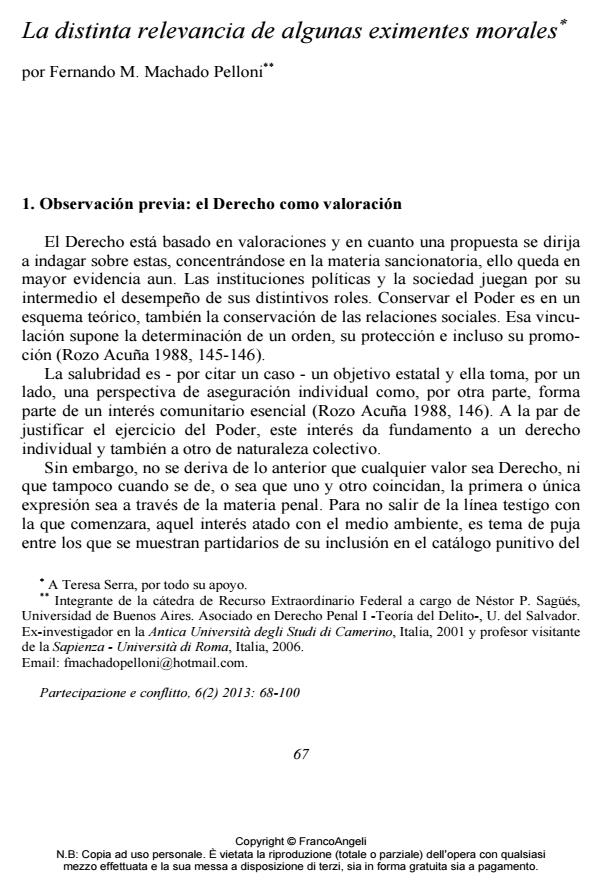The different roles of some ethical derogations
Journal title PARTECIPAZIONE E CONFLITTO
Author/s Pelloni Fernando M. Machado
Publishing Year 2013 Issue 2013/2
Language Spanish Pages 34 P. 67-100 File size 413 KB
DOI 10.3280/PACO2013-002004
DOI is like a bar code for intellectual property: to have more infomation
click here
Below, you can see the article first page
If you want to buy this article in PDF format, you can do it, following the instructions to buy download credits

FrancoAngeli is member of Publishers International Linking Association, Inc (PILA), a not-for-profit association which run the CrossRef service enabling links to and from online scholarly content.
The Law is used to maintain power on behalf of an elite: this is the reason why the Criminal Law is one of the basis of our society. Indeed, a political community should protect a behaviour contrasting the Law, when it is suggested by an ethic conviction. The essay illustrates why civil disobedience is not a crime but, on the contrary, it represents a strengthening of democracy.
Keywords: Law, Crime, Democracy, Ethics, Derogation
Pelloni Fernando M. Machado, La distinta relevancia de algunas eximentes morales in "PARTECIPAZIONE E CONFLITTO" 2/2013, pp 67-100, DOI: 10.3280/PACO2013-002004